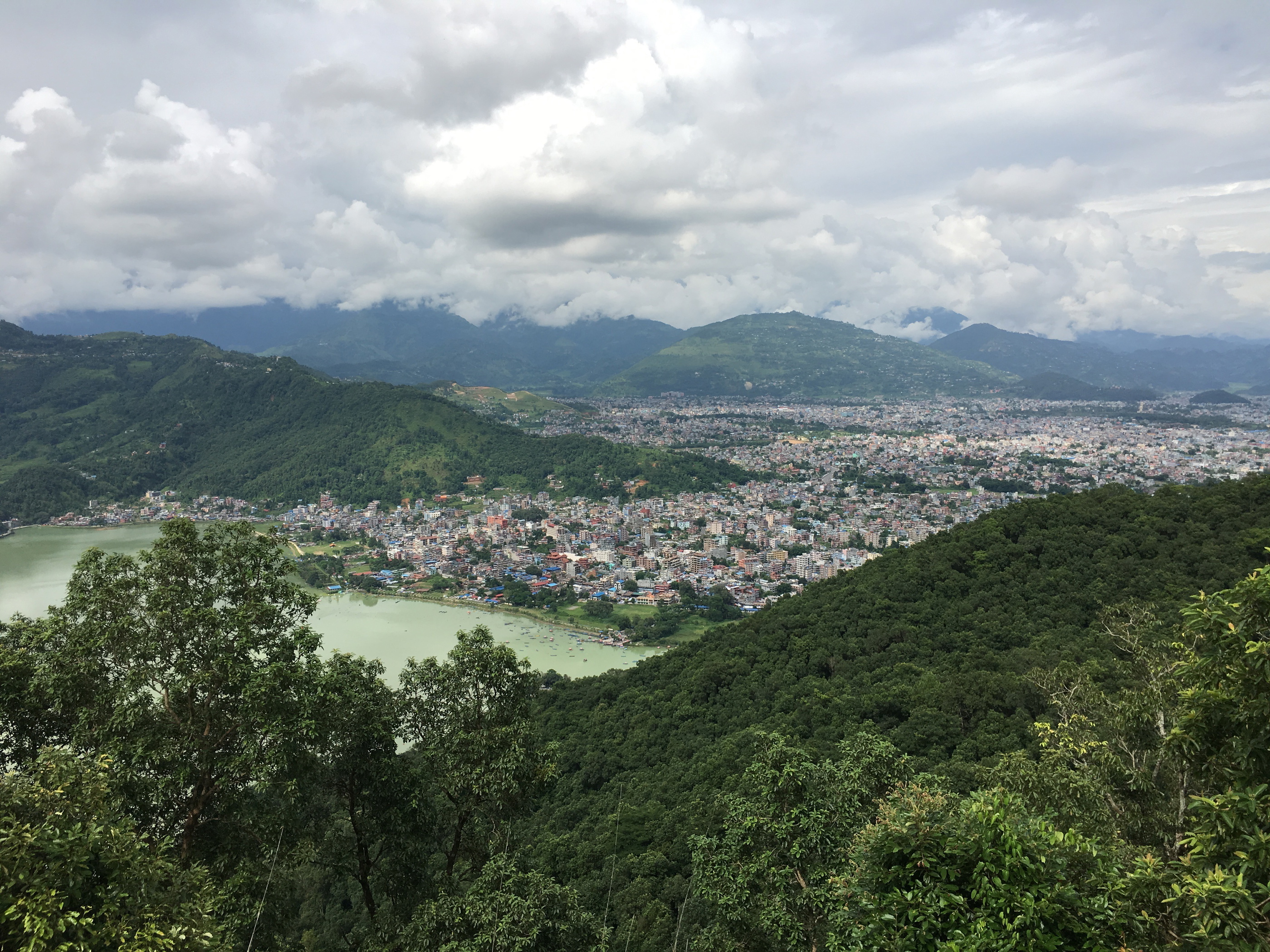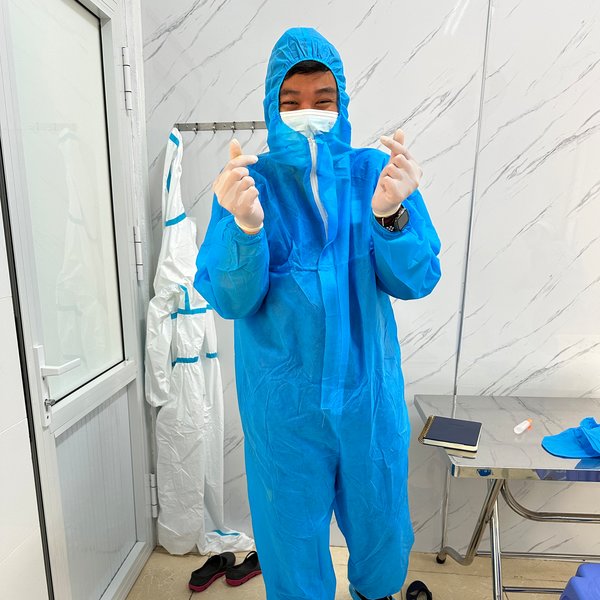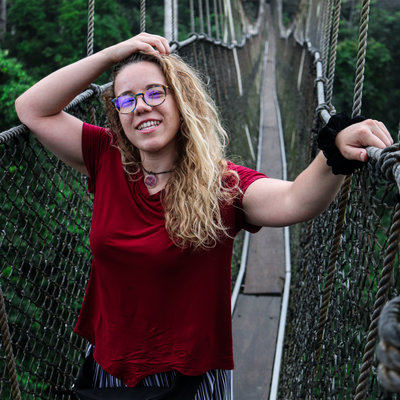Cardiff University 2019
Before even going to University I had decided that I wanted to spend every summer doing something extraordinary. After finishing my first year, I decided that I wanted to do a placement at a hospital pharmacy and so I spent three weeks on placement in Iloilo in the Philippines.
 Before going, it’s explained that it is very different to the UK, with wards overflowing with patients, and much fewer resources. The hospital was smaller than I expected for a tertiary hospital but parts were under renovation/construction to accommodate the increasing number of patients.
Before going, it’s explained that it is very different to the UK, with wards overflowing with patients, and much fewer resources. The hospital was smaller than I expected for a tertiary hospital but parts were under renovation/construction to accommodate the increasing number of patients.
We were also told that privacy regarding patients was different to what we’d be used to at home and I saw this during my two days in oncology. In the UK, even in community pharmacy, there is a private consultation room for patients to discuss matters but in oncology there was one consultation room where a patient would be talking to the doctor and there would be patients sitting right behind them, waiting for their turn.
I had limited experience with types of cancers or drugs used for chemotherapy, but it was in this department that I got to assist with some pretty cool things. I was allowed to assist in preparing chemotherapy pre-medications such as ondansetron and dexamethasone. The actual chemotherapy was prepared in a sterile environment. At Cardiff University we’re are lucky enough to have an aseptic suite and I had assumed that this was standard for every hospital; stepping into the oncology treatment room in Iloilo was just a complete shock. Their ‘aseptic suite’ was an incubator from the NICU modified to have laminar flow – given the lack of funding available it was an excellent use of resources.
 During my time with the NICU pharmacist I observed her making smaller strengths of drugs - I don’t think this is done in the UK, but in the PHP, especially with NICU meds, capsules can be split to make smaller doses. The capsules are opened and the powder is poured onto a glass plate. It is then split evenly to produce whichever strength the baby requires and each dose is packed in a little tissue paper square.
During my time with the NICU pharmacist I observed her making smaller strengths of drugs - I don’t think this is done in the UK, but in the PHP, especially with NICU meds, capsules can be split to make smaller doses. The capsules are opened and the powder is poured onto a glass plate. It is then split evenly to produce whichever strength the baby requires and each dose is packed in a little tissue paper square.
It's quite stressful to observe as it’s not an accurate method. This, however, is a great learning opportunity to discover how other countries that have fewer resources cope with not having that range of drug strengths we have in the UK.
There is quite a difference in the prescribing practices of painkillers in Iloilo as compared to the UK. I was told that as the patients have to pay for their medication they would rather not waste their money on non-essential medicines. This meant that out of the few that were prescribed, the most common was paracetamol. I assisted with dispensing medications for the wards in the afternoon, and I can safely say that a small community pharmacy sells more co-codamol than the whole hospital prescribes in a day.
Two particular patients stand out for me. I was in oncology and I was allowed to observe the pharmacist prepare the chemotherapy and then see the doctor administer it into the spine. I was so excited and so focused on learning about everything – the drugs, the culture, the practices - that it was easy to forget that behind the interesting file of notes there was an ill patient. The chemotherapy was to be administered to a young child who was crying as one of her parents held her in place.
 The second was a case in the paediatric ward where I joined two other Work the World students who were accompanying a doctor on their rounds. I was only able to stay for a short while but the last patient we saw really hit me. A child had a retinoblastoma growing out of their eye - it would have been considered an advanced case in the UK, while the doctor on the round said that she had seen worse.
The second was a case in the paediatric ward where I joined two other Work the World students who were accompanying a doctor on their rounds. I was only able to stay for a short while but the last patient we saw really hit me. A child had a retinoblastoma growing out of their eye - it would have been considered an advanced case in the UK, while the doctor on the round said that she had seen worse.
We take the NHS for granted and going to the Philippines made me realize just how lucky we are to have free healthcare. The family could not afford treatment and so the prognosis for the child was poor.
Going to Iloilo was a great opportunity to learn about tropical diseases such as dengue which was on the rise with it being the rainy season. I also learnt about diseases rarely seen in the UK such as rabies - the pharmacy had an entire fridge stocked of rabies vaccines. I noted the similarities between the two countries in terms of population health – antihypertensives are the most common drug class prescribed in the UK, and at the hospital many charts stated that the patients’ condition was ‘secondary to uncontrolled hypertension’.
A placement with Work the World isn’t just about the hospital. The weekly BBQ and karaoke nights are a good laugh and you will eat way too much – just like at every meal at the house, the catering team do a great job.
 With every weekend off you have plenty of time to go exploring and so one weekend we had a mini road trip to Boracay where the sea is so beautifully blue and clear that I thought that such places only existed within the pages of a travel magazine. Shops and restaurants line the beach with cuisines from all over, and we also went island hopping – giving us plenty of photoshoot opportunities!
With every weekend off you have plenty of time to go exploring and so one weekend we had a mini road trip to Boracay where the sea is so beautifully blue and clear that I thought that such places only existed within the pages of a travel magazine. Shops and restaurants line the beach with cuisines from all over, and we also went island hopping – giving us plenty of photoshoot opportunities!
I would highly recommend undertaking a placement overseas, especially with Work the World. The team are so supportive in the house – they check in on you at the hospital and are always interested in what students have seen and learnt that day. If you think that you won't be able to afford it there are ways to help fund it. Save over the summer, fundraise, or see if your university has a grant available for summer placements. It’s 100% worth it and three weeks there was not enough for me.
Take a leap of faith and maybe you’ll find out that even though you’re on the other side of the world there are other students just like you – who want to travel, and try new things, and learn. You won’t be alone.









